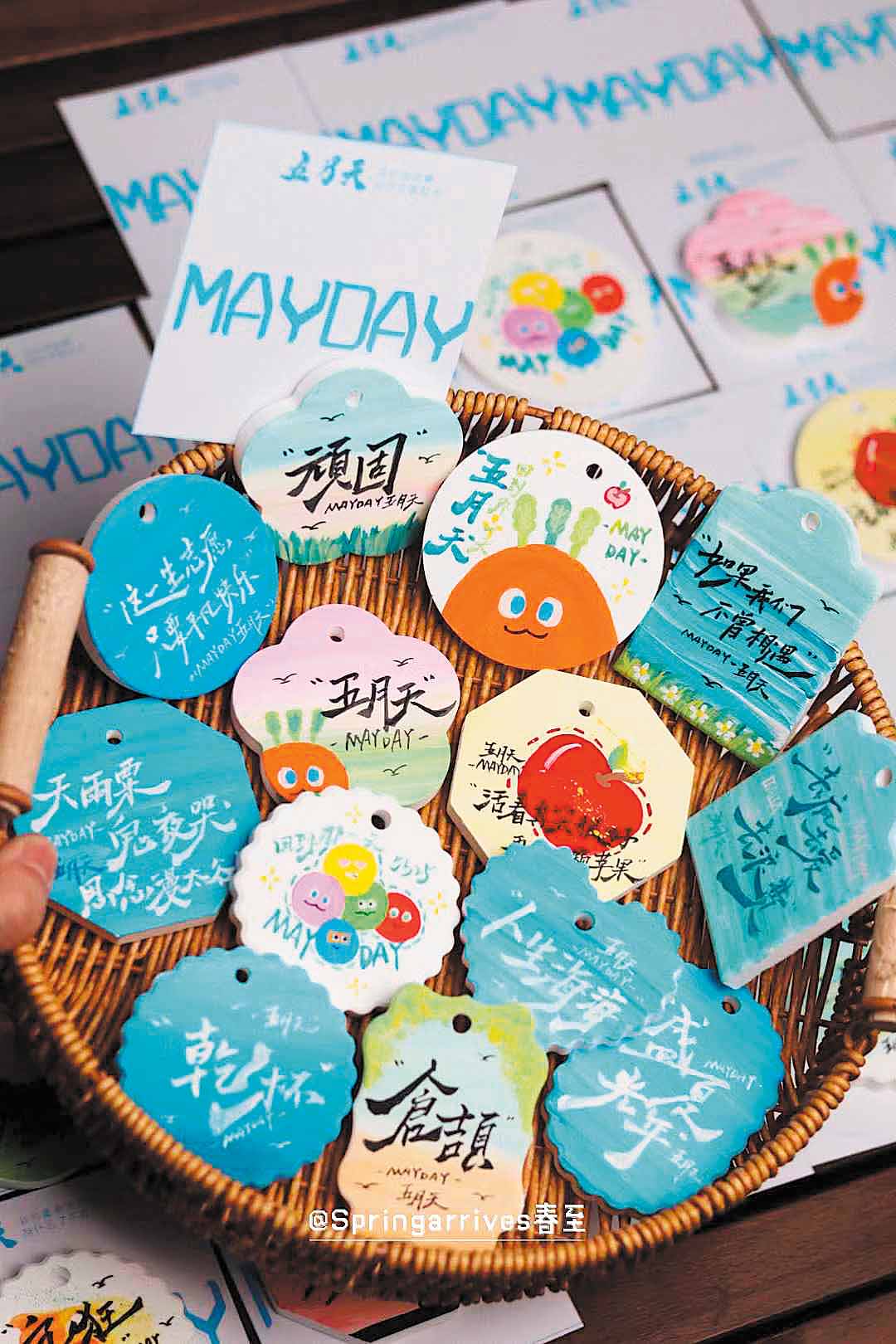'Fan economy' grows into commercial powerhouse
Supporters of star performers drive merchandise sales, form deep connections


Despite having little money, she cherished small items such as 4-yuan magazines, which are all carefully displayed in her home years later.
"I was going through a difficult period and felt very alone. The music and youthful energy of the Super Boy contestants became my personal utopia — a source of comfort I couldn't find anywhere else," she recalled.
As her fandom matured, Li began attending concerts, music festivals and variety show recordings, sometimes traveling south to see her idols live.
Among her favorites are singers Wang Yuexin, Su Xing and Chen Chusheng. Her devotion extends beyond attending performances and she has created what she calls "support campaigns", including a retro-style tribute to Wang's albums Freak Out and Parachute.
"I wanted more people to hear these songs, to understand the passion and effort he put into them. Seeing fans in a stadium sing along to songs that had once only lived in my headphones was a moment of pure exhilaration," she said.
Among Li's most treasured items are physical copies of Freak Out and Su Xing's Jin Xing Shi. "I don't buy things just because others do. I follow my own feelings, and I'm more interested in collecting older albums that remind me of the era I grew up in," she said.
She said these artists appeared in her life at just the right moment. "Through their music, I learned to embrace my own ideas, to reconcile with myself, and to pursue what I truly love," said Li.
While Li's fandom is rooted in nostalgia, He Hehe, a content operator in her late 20s living in Shenzhen, Guangdong province, approaches celebrity merchandise differently.
For her, merchandise is not just memorabilia — it is an emotional anchor and a form of self-expression.
Her fandom began in 2018 while at university, when she became a fan of Chen Linong — a singer, actor and future member of Nine Percent — after watching the reality show Idol Producer. Her first purchase was a gift box with his endorsement, containing branded products and postcards.
"I didn't really think about whether or not I needed it. It was something he endorsed; I just wanted to help the sales figures," she said. Her impulse was to support Chen Linong commercially, even if the items she purchased weren't practical, He said.
After graduation, her focus shifted to the boy band Teens in Times. Unlike Chen Linong, whose products were mostly endorsements, TNT regularly released official items designed for fans — from photo cards to plush dolls.
"The frequency of purchases depends on the artists. If it's useful, like beverages or daily items, or if official goods include things I like, I'll order them," said He.
She spends 5,000 to 8,000 yuan annually on merchandise and "fan support", attending four to six offline events a year. Many official goods — photo books, postcards and plush key chains — are purchased simply for the thrill of unboxing.
"The peak happiness is opening the package. Afterward, they often sit in a corner collecting dust. Sometimes I don't even use notebooks or stickers, because just seeing them is fulfilling," she said.
Among her favorites are photo cards and cotton dolls.
"Photo cards are simple, beautiful, and collectible; cotton dolls carry a strong sense of companionship. No fan can resist a three-inch photo card and a cotton doll," she added.
She also has fan-made items like drawings and handmade goods, but considers official products more valuable.
"Official merchandise is closely connected to the artist, sometimes even designed with their involvement. Fan-made items are just extensions. Even when people like my work, it's ultimately because of the artist," He said.
One special piece bridges both worlds: a postcard she made for Chen Linong's birthday, later signed by him and mailed back to her. "It showed my effort wasn't meaningless. That card symbolizes how merchandise can carry memory, creativity, and even career direction," she said.
For He, merchandise is more than consumption; it's a way to escape daily pressures, a reward after long workdays, and a source of joy that fuels creativity. Piles of unopened items and cherished collectibles in her room testify to her devotion.
"To outsiders, they may look like simple goods, but to me, each piece tells a story of passion, community, and the enduring pull of star-chasing. If my daytime job gives me material rewards, then this gives me spiritual fuel," said He.
























